Overview:
To obtain American Diabetes Association certification, candidates must meet specific educational and professional criteria, including holding a healthcare-related degree and completing at least 1,000 hours of supervised practice in blood sugar education. The article outlines a comprehensive step-by-step guide for preparation, emphasizing the importance of understanding the assessment content, gathering study materials, and taking practice tests to ensure candidates are well-equipped for the certification exam.
Introduction
The journey to becoming a Certified Diabetes Care and Education Specialist (CDCES) is both rigorous and rewarding, offering healthcare professionals a pathway to enhance their expertise in diabetes management. This certification not only validates their knowledge but also opens doors to numerous career opportunities and improved patient outcomes.
As the demand for skilled diabetes educators continues to grow, understanding the qualifications, preparation strategies, and benefits associated with the CDCES credential becomes essential.
This article delves into the necessary steps for achieving certification, effective study techniques for exam readiness, and the invaluable resources available to support both educators and patients in their diabetes management journey.
Essential Qualifications for CDCES Certification
To qualify for the American Diabetes Association certification, candidates must fulfill specific educational and professional requirements for the Certified Diabetes Care and Education Specialist (CDCES) certification. Generally, applicants should hold a degree in a healthcare-related field, such as nursing, dietetics, or pharmacy. Furthermore, candidates must have completed at least 1,000 hours of supervised practice in blood sugar education to qualify for the American Diabetes Association certification within the past four years.
A robust understanding of managing the condition is crucial, encompassing knowledge of treatment options, lifestyle modifications, and effective patient education strategies. It is crucial to gather documentation that confirms both clinical hours and educational credentials, as this will aid in a smooth application process.
As part of their preparation, candidates may consider enrolling in online university courses that are refreshed yearly according to the latest guidelines for American Diabetes Association certification and the CDC's content outline. These courses aim to provide evidence-based, clinically relevant content that enhances assessment success and improves the quality of care for individuals living with diabetes, which is aligned with the American Diabetes Association certification. According to recent statistics, the 2024 certificate pool comprises:
- 43% Registered Nurses
- 44% Registered Dietitians/Nutritionists
- 9% Pharmacists
- 3% from other disciplines
This highlights the diverse professional backgrounds from which candidates may come.
As one healthcare professional aptly noted,
This means test takers need to have in-depth knowledge of this comprehensive list of topic areas to enhance success on the assessment.
Therefore, candidates should rigorously prepare to meet these qualifications, ensuring they are well-equipped for the assessment. It is important to note that the information provided on the website does not constitute medical advice or endorsements of specific products or services.
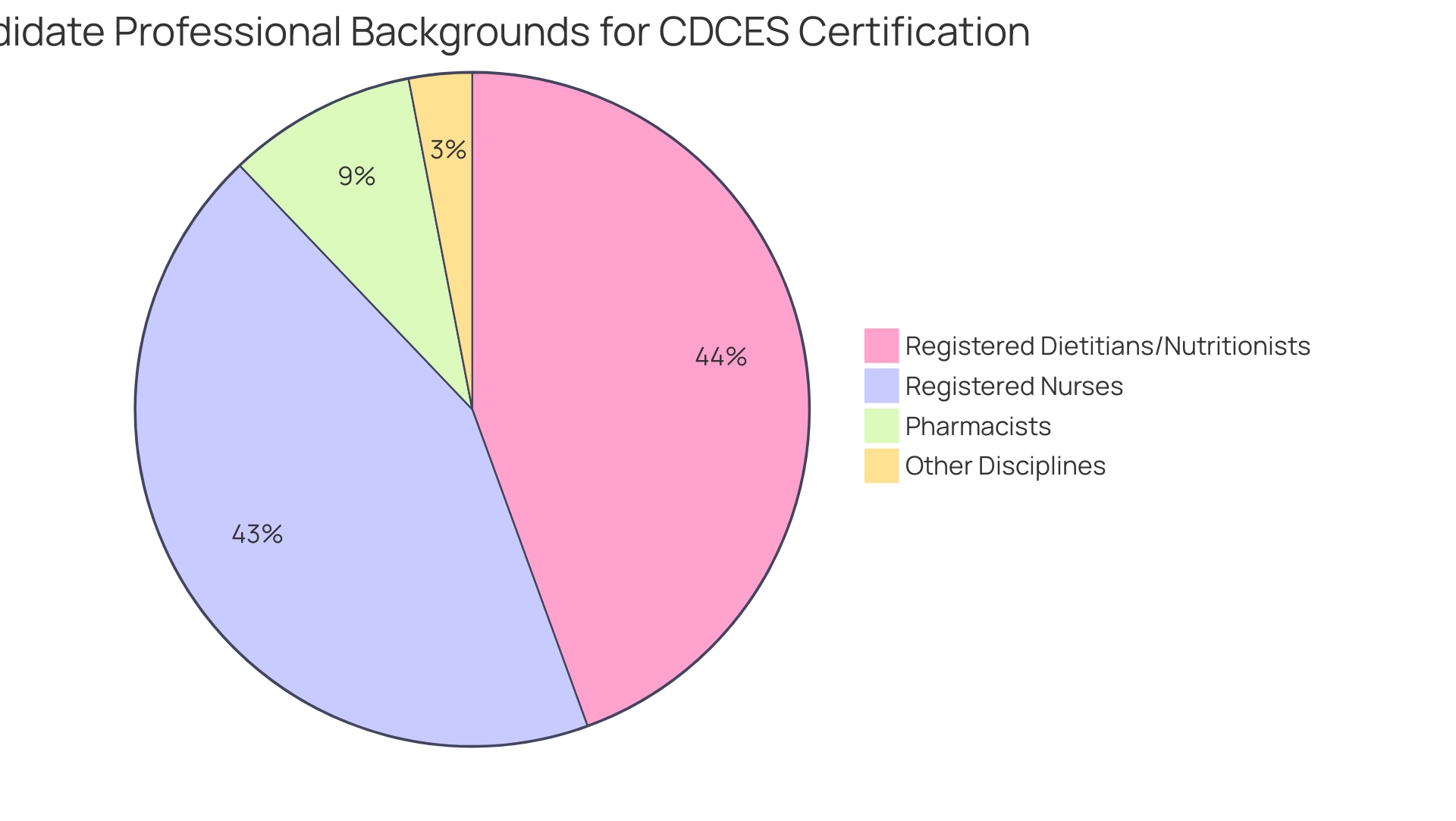
Step-by-Step Guide to Preparing for the CDCES Exam
-
Review the Assessment Content Outline: Begin by thoroughly familiarizing yourself with the assessment content outline provided by the certification board. Understanding the topics covered is crucial for effective time allocation in your study plan.
-
Gather Study Materials: Utilize reputable resources tailored for CDCES preparation, such as textbooks, online courses, and practice assessments. Engaging with study groups or forums can provide valuable support and enhance your learning experience.
-
Create a Study Schedule: Develop a structured and realistic study plan that systematically covers all relevant topics. Consistent studying, instead of last-minute cramming, is crucial for enhancing knowledge retention and preparation. Remember, candidates must schedule their test within a 90-day window after application approval, so plan accordingly.
-
Take Practice Tests: Regularly completing practice tests will help you assess your preparedness and pinpoint areas for improvement. Focus on understanding the rationale behind each answer, as this will deepen your comprehension of the material.
-
Understand the Assessment Format: Starting July 1, 2024, the CDCES assessment will consist of 175 multiple-choice questions, with a total testing time of four hours. Twenty-five of these questions will be pre-test questions. This means test takers need to have in-depth knowledge of this comprehensive list of topic areas to enhance success.
-
Schedule the Assessment: Once you feel adequately prepared, register for the assessment through the American Diabetes Association certification process on their website. Choose a date that allows sufficient time for final review and consolidation of your knowledge, keeping in mind that candidates must schedule their exam within a 90-day window after application approval.
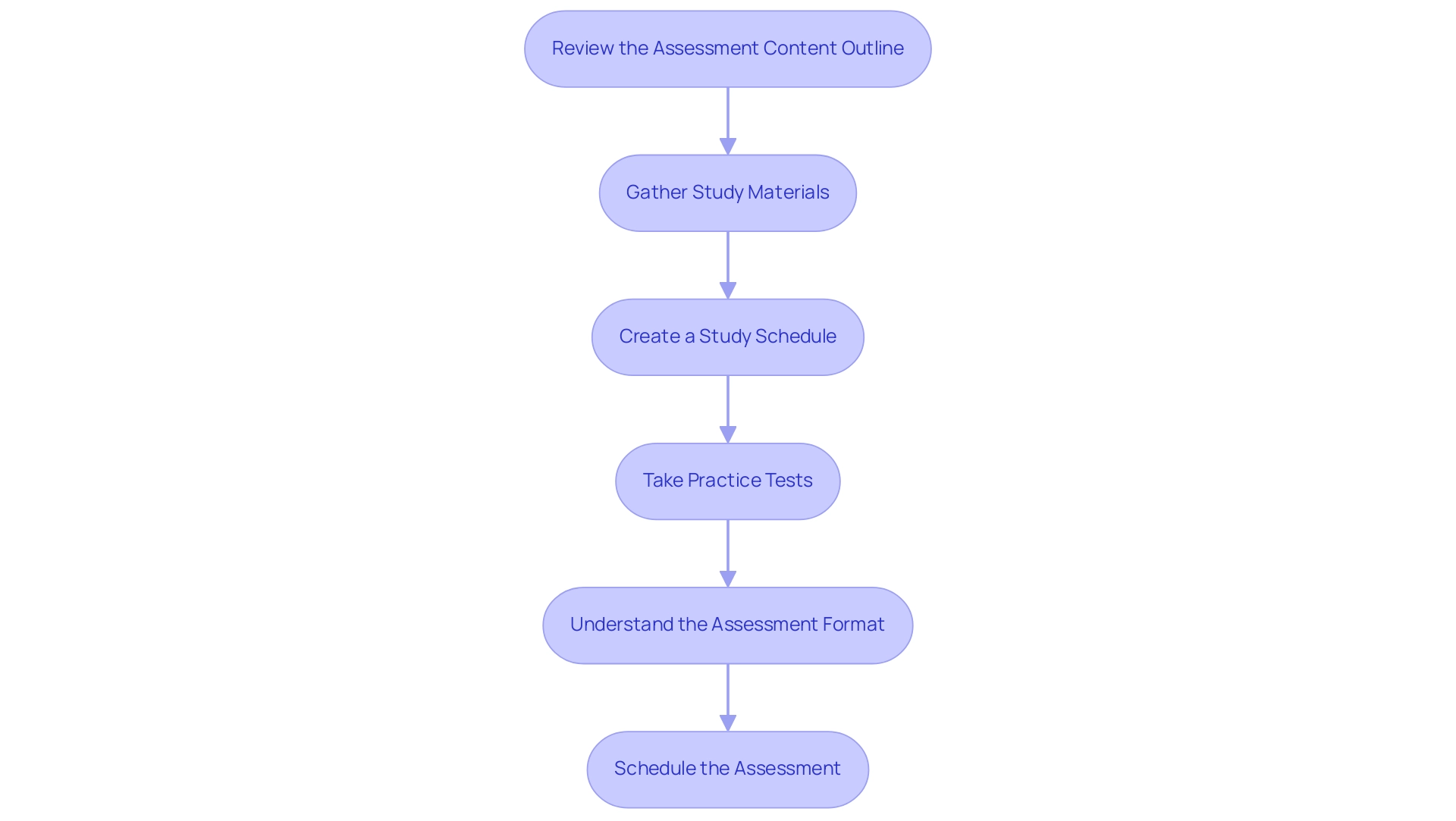
Benefits of Becoming a Certified Diabetes Educator
Acquiring the Certified Diabetes Specialist credential offers numerous benefits for healthcare professionals, especially regarding T2DSolutions, a new resource hub focused on Type 2 and Type 3 health education and community support:
-
Enhanced Professional Credibility: The credential serves as an official acknowledgment of your knowledge in managing blood sugar education. This designation not only bolsters your professional reputation among colleagues and patients alike but also positions you as a trusted resource within the healthcare community, especially as T2 Solutions aims to connect patients with knowledgeable educators.
-
Career Advancement Opportunities: Numerous healthcare employers prioritize or even require CDCES credentials, significantly expanding your career prospects in managing and educating about diabetes-related issues. As T2DSolutions enhances its platform, the need for qualified educators in managing blood sugar conditions will increase, making this accreditation a crucial element in obtaining advanced positions within healthcare organizations.
-
Improved Patient Outcomes: Research indicates that certified educators play a crucial role in enhancing patient outcomes. A study with a sample size of 522 shows that individuals armed with the latest knowledge and skills through certification are better positioned to provide effective education on managing blood sugar. This leads to improved clinical, psychosocial, and behavioral aspects of diabetes care, aligning with T2D Solutions' mission to provide comprehensive support to newly diagnosed patients.
-
Networking Opportunities: By joining the community, you gain access to valuable networking opportunities with fellow professionals. This collaborative environment fosters the sharing of best practices, access to exclusive resources, and ongoing continuing education opportunities, all of which are essential for professional growth and are integral to the community-building efforts at T2 Solutions.
Furthermore, the impact of CDCES certification extends beyond individual careers; it contributes significantly to the overall healthcare landscape. Funding for projects aimed at enhancing care for individuals with the condition, such as those provided by the Park Nicollet Foundation, underscores the importance of certified educators in addressing unmet community needs and overcoming barriers to care. The Park Nicollet Foundation states its mission is to “bring enhanced care to Park Nicollet clinics, specialty centers and Methodist Hospital and partner with schools and area nonprofits to address unmet community needs and help people overcome barriers to care.” The value placed on these professionals is echoed by healthcare leaders who advocate for the incorporation of certified educators in clinical settings to optimize patient management and health outcomes. Additionally, case studies illustrate how quality improvement interventions led by DCESs contribute to better health outcomes and the effective management of diabetes care, reinforcing the importance of T2D Solutions in this landscape.
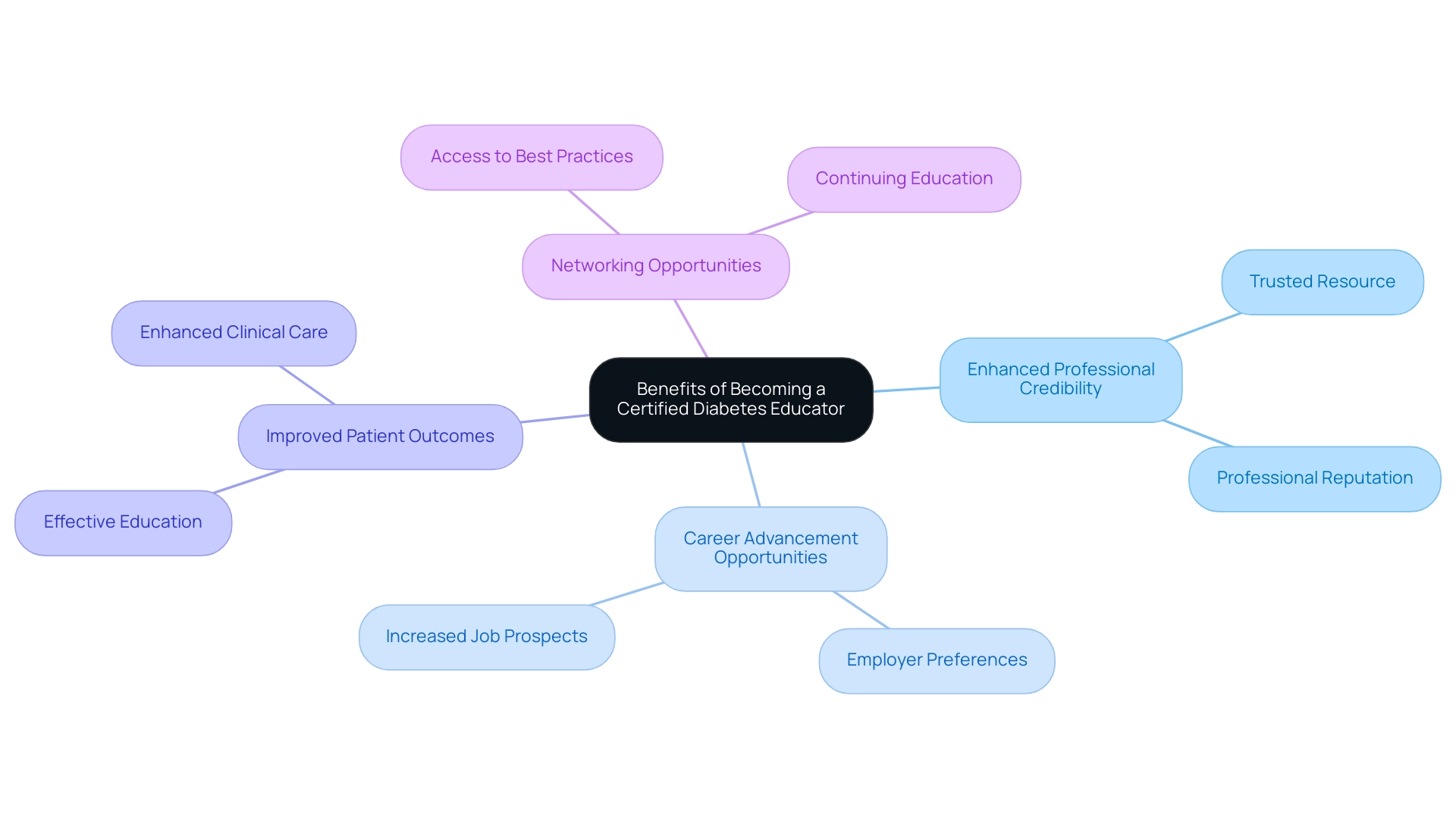
Frequently Asked Questions About CDCES Certification
-
What is the price of the certification test?
The cost of the CDCES exam can vary, so it is essential to consult the American Diabetes Association’s website for the most up-to-date pricing information. As of 2024, candidates should prepare for potential changes in fees, ensuring they are fully informed before proceeding. -
How often do I need to recertify?
The CDCES certification is valid for a period of five years. To maintain their qualifications, professionals must complete continuing education credits and submit a recertification application within this timeframe. Notably, CBDCE has determined that 40 is the maximum number of hours per week in diabetes care and education (DCE) that may be reported when applying for initial certification, which underscores the time commitment involved in maintaining certification. -
Can I take the test online?
Yes, the CDCES exam offers flexibility, allowing candidates to take it either at designated testing centers or online, accommodating various preferences and needs. -
What resources are suggested for test preparation?
For effective preparation, individuals are encouraged to utilize a combination of resources such as textbooks, online courses, and practice tests that specifically target the CDCES exam. Additionally, CBDCE emphasizes the importance of reviewing the Exam Content Outline to identify key areas that will be assessed. Starting July 1, 2024, the CDCES exam will consist of 175 multiple-choice questions, including 25 pre-test questions that do not count towards the score. As stated by CBDCE,In talking with your supervisor, you two can agree on what experience can be counted and also agree on how you'll track that information.
This collaborative approach can help clarify any uncertainties regarding preparation and eligibility.
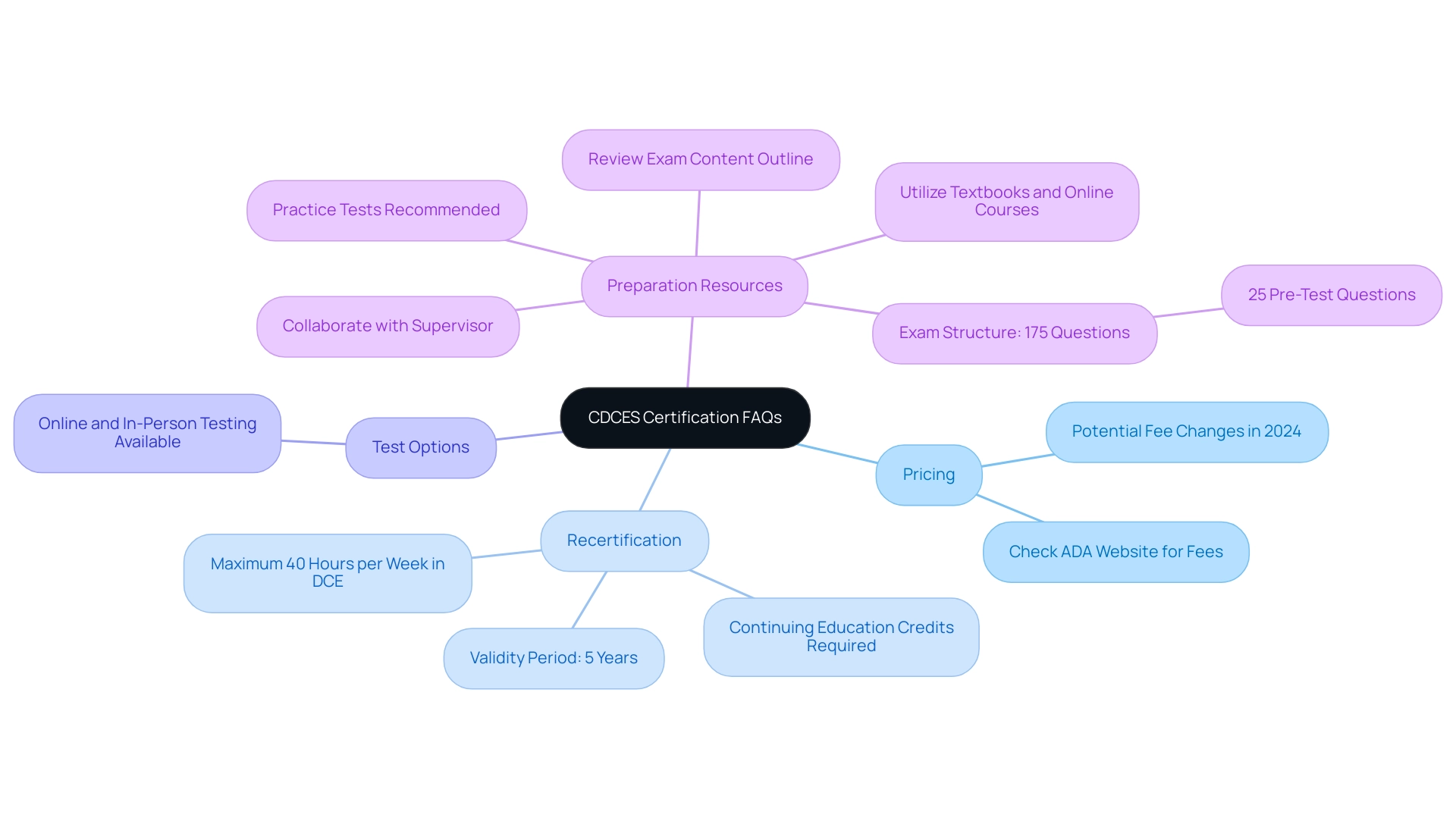
Continuing Education and Resources for Certified Diabetes Educators
At T2DSolutions, we recognize that recently diagnosed individuals with Type 2 and Type 3 require dependable resources and assistance to manage their condition effectively. Here are some essential resources available through our platform:
-
T2DSolutions Resource Hub: Our hub provides access to a variety of educational materials, including articles, videos, and interactive tools designed specifically for newly diagnosed patients.
This ensures that you have the information you need to make informed decisions about your health. -
Webinars and Community Support: We host regular webinars featuring healthcare professionals who share insights on managing blood sugar, treatment options, and lifestyle changes. Additionally, our community support groups offer a space for patients to connect, share experiences, and learn from each other.
-
Expert Guidance: Our team comprises certified educators in managing blood sugar levels who are available to answer your questions and provide personalized advice. They can assist you in navigating your health journey with confidence.
Patient Testimonials: Hearing from others who have successfully managed their condition can be inspiring. Our platform features testimonials from patients who have utilized our resources and support, showcasing real-life experiences and strategies that can help you.
By utilizing these resources available at T2DSolutions, newly diagnosed patients can enhance their understanding of diabetes management, connect with others in similar situations, and ultimately improve their health outcomes.
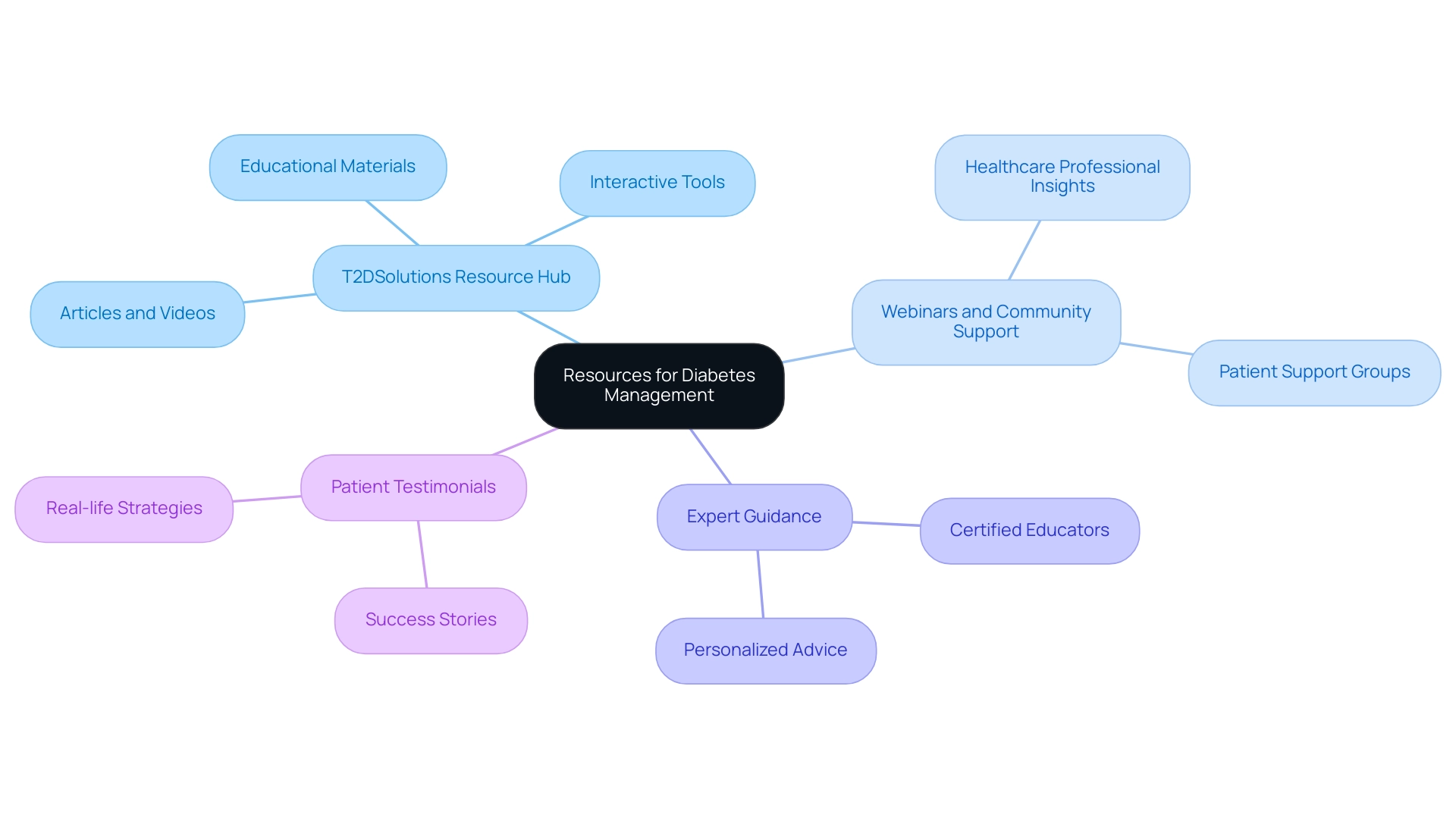
Conclusion
The path to becoming a Certified Diabetes Care and Education Specialist (CDCES) is both challenging and fulfilling, with significant implications for professional development and patient care. Meeting the essential qualifications—such as obtaining a relevant degree and accumulating supervised practice hours—is the first step in this process. Candidates are encouraged to utilize updated educational resources, including online courses aligned with the latest guidelines, to deepen their understanding of diabetes management.
Preparation for the CDCES exam requires a structured approach, including:
- Familiarization with the exam content outline
- Gathering appropriate study materials
- Creating a comprehensive study schedule
Regular practice tests are invaluable for assessing readiness and identifying areas for improvement. With the exam format changing in July 2024, understanding the structure and timing of the test will further enhance candidates' confidence.
Achieving CDCES certification not only elevates professional credibility and opens up new career opportunities but also significantly improves patient outcomes. Certified educators are integral to effective diabetes management, as they provide essential support and education, positively impacting the lives of those living with diabetes.
In conclusion, the journey to CDCES certification is a worthwhile investment for healthcare professionals looking to advance their careers while contributing to better patient care. By committing to rigorous preparation and leveraging available resources, candidates can position themselves as leaders in diabetes education, ultimately benefiting both their professional growth and the health of their communities.



